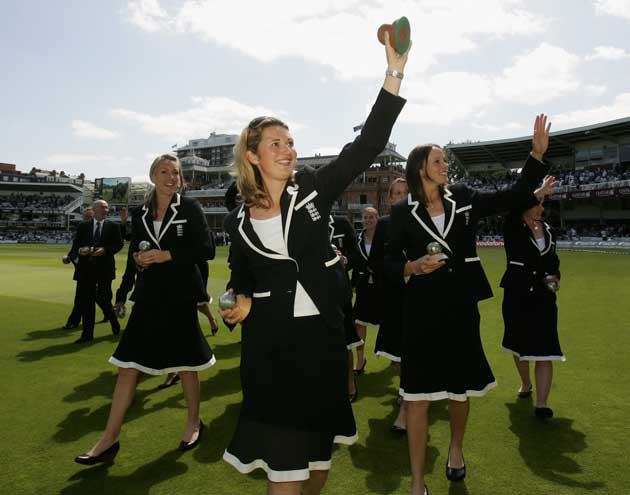Women cricketers fail to break through old boys' defensive block
Ten years after Lords ended its men-only rule, helping it to attract millions in funding, only 62 out of 18,000 full members are female

Your support helps us to tell the story
From reproductive rights to climate change to Big Tech, The Independent is on the ground when the story is developing. Whether it's investigating the financials of Elon Musk's pro-Trump PAC or producing our latest documentary, 'The A Word', which shines a light on the American women fighting for reproductive rights, we know how important it is to parse out the facts from the messaging.
At such a critical moment in US history, we need reporters on the ground. Your donation allows us to keep sending journalists to speak to both sides of the story.
The Independent is trusted by Americans across the entire political spectrum. And unlike many other quality news outlets, we choose not to lock Americans out of our reporting and analysis with paywalls. We believe quality journalism should be available to everyone, paid for by those who can afford it.
Your support makes all the difference.It took more than 200 years for the Marylebone Cricket Club (MCC) to allow women inside the oak-panelled chambers of its members-only pavilion at Lords. In 1998 its fraternity was given a stark warning by the club's then president, Colin Ingleby-Mackenzie, who said it would be "very difficult to find outside finance for MCC's external activities while the club excludes women from membership".
Despite a number of its more elderly members throwing down their "bacon and egg" ties in disgust, the club allowed women in – and with them a flood of money. In the past 10 years, Lords has received millions of pounds in funding from private investment, as well as £200,000 in direct Lottery grants.
But over that same decade the number of women allowed to join its 18,000 members has increased to just 62, 0.3 per cent of the club's membership.
Dr Katherine Rake, director of the Fawcett Society, which campaigns for equality, said yesterday: "Paying lip service to equality is not enough. Funders and sponsors should be looking at how they're delivering equality in their membership as well."
With more than 25,000 women now playing cricket in Britain, the country's foremost club has been accused of failing to keep up with changing times. Women were initially fast-tracked through the 17-year waiting list in the two years following the rule change, with 18 honorary life members elected between 1998 and 1999. But since then, only five women have been voted in. The other 39 female members are those who have played matches for the MCC.
In contrast, approximately 400 men join the club every year.
More than 600 women are known to be on the waiting list to become full members, as they hold lesser associate and candidate memberships. But this does not put them among the full members that have voting rights. The MCC would not reveal how many women in total were queuing to join.
The women's cricket coach Charlotte Burton said: "The women's game has increased massively in the past five years, so it's surprising it's still so imbalanced. Some women – like those who played for England – should be fast-tracked because they could only register for the list 10 years ago."
Lords is to get a £200m facelift over the next 10 years, funded by the money it attracted since allowing women to join. But critics say the old boys' club atmosphere still prevails.
Sue Tibballs, chief executive of the Women's Sport and Fitness Foundation, said: "The case of the MCC shows that it isn't enough to just open the door; more needs to be done to remove the hurdles and invite women to walk through it." She added that allowing women to apply was not enough when the application process was stacked against them. "The application process favours men," she said.
"The fact MCC plays more men's fixtures means it is easier for them to become playing members. To become an ordinary member your application has to be supported by four MCC members – more simple if you have things in common with the old boys' network."
The MCC argues that women have to sit on the waiting list for the same length of time as male applicants.
The former England cricket captain Rachael Hayhoe-Flint – one of the few women with honorary life membership – believes that fast-tracking women to redress the balance would be divisive. "Having waited 211 years to acquire membership, that's the one thing I stressed throughout the nine-year campaign: we didn't want any favours.
"The process of becoming a member is exactly the same as for the men, and why shouldn't it be?"
Join our commenting forum
Join thought-provoking conversations, follow other Independent readers and see their replies
0Comments